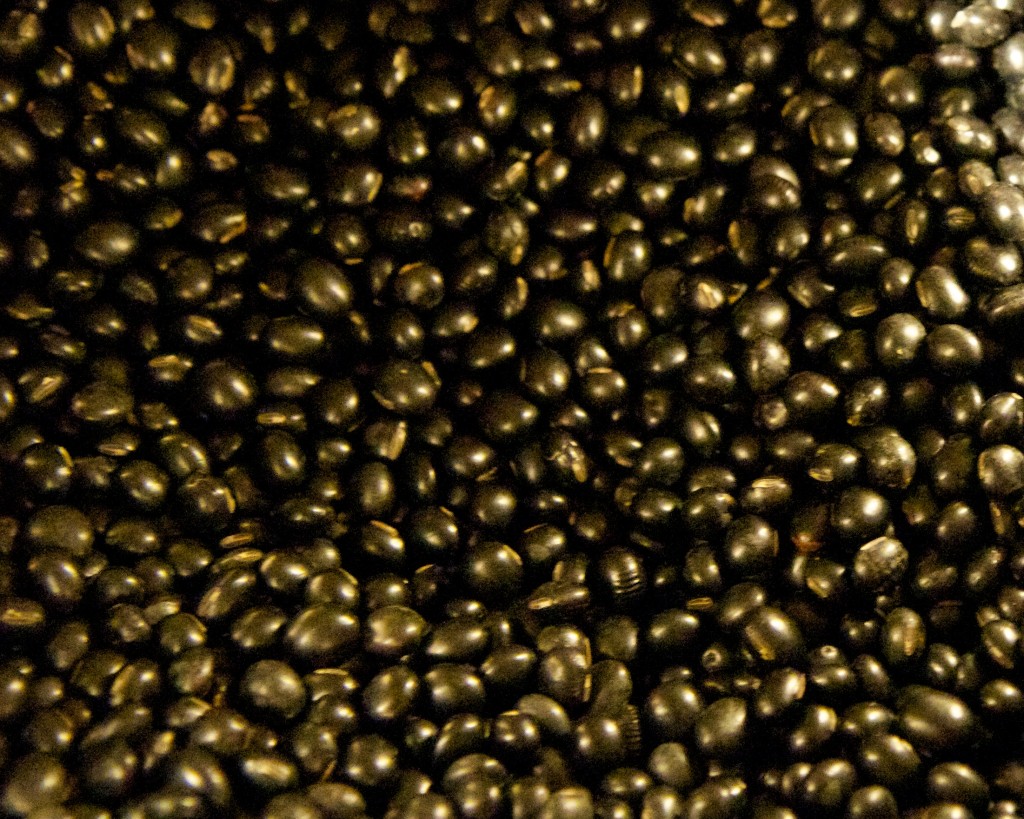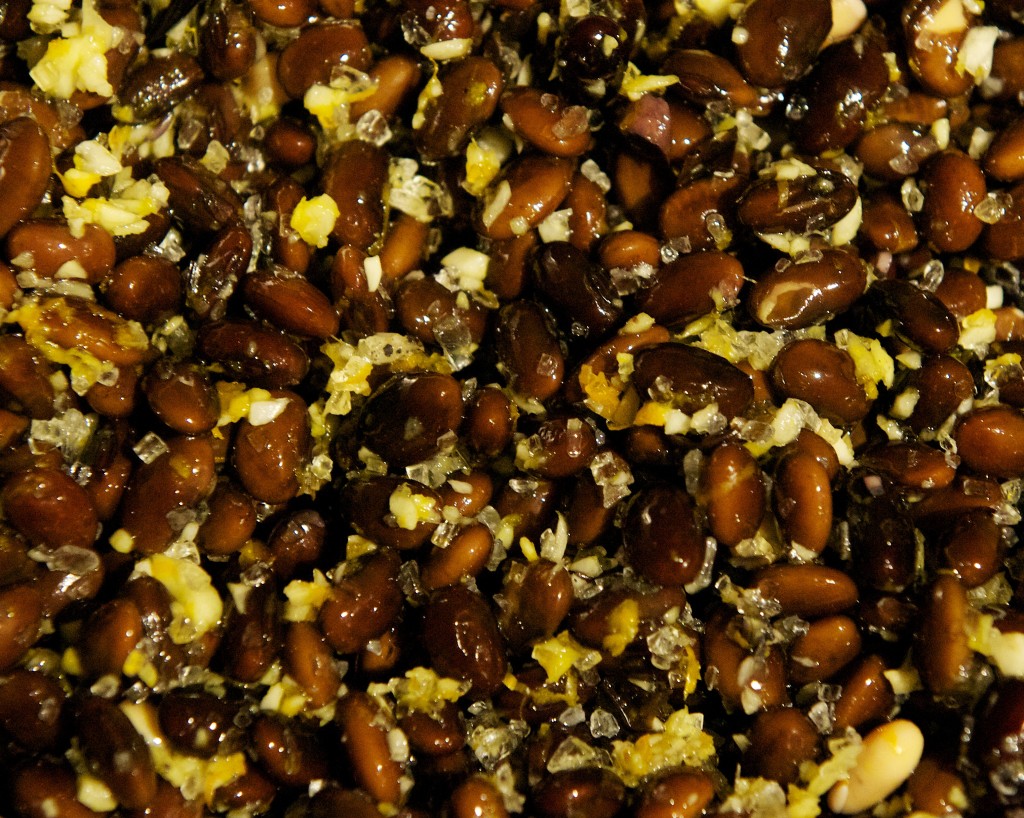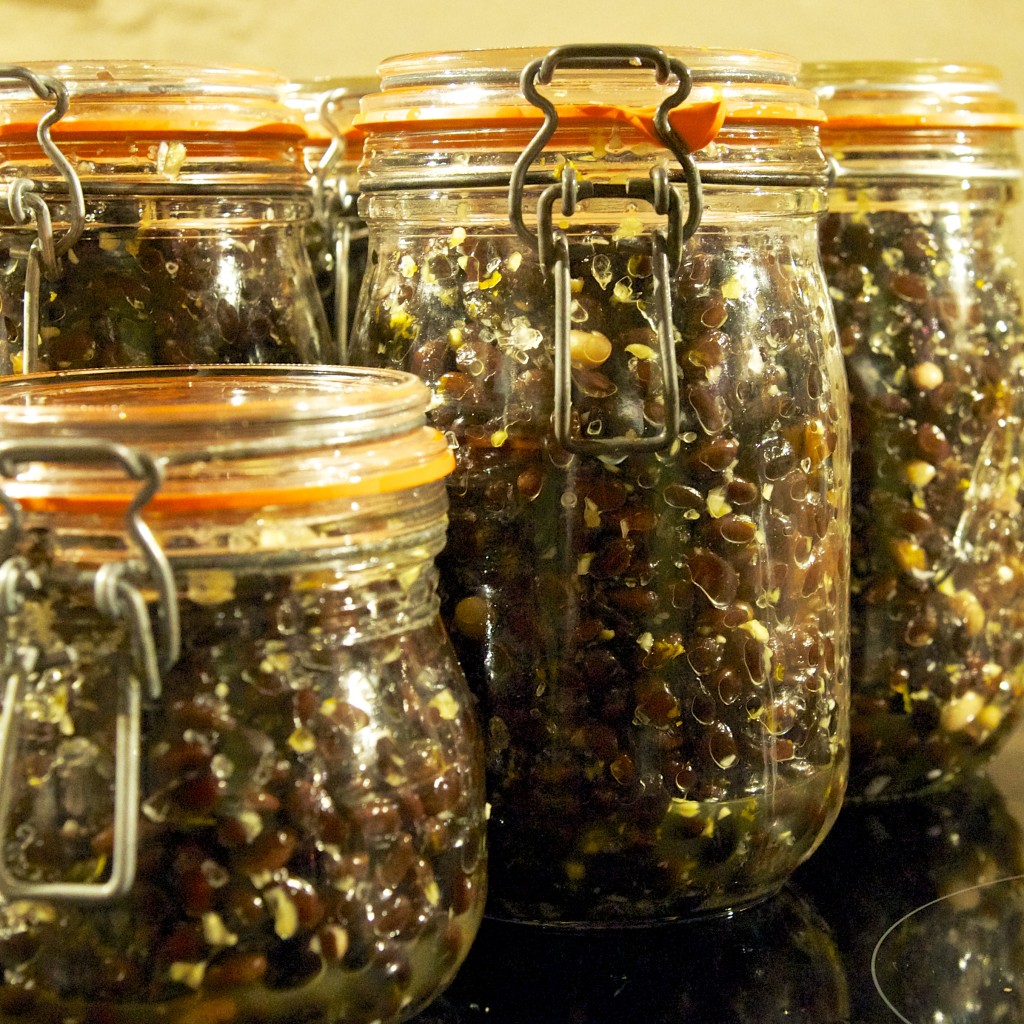A few years ago, I bought Preserved by Nick Sandler and Johnny Acton. It’s a great book and contains details and recipes for a wide variety of preservation techniques – salting, air-drying, pickling, fermenting, smoking – the lot. One of the recipes is for fermented black beans – as used in many Chinese dishes. The recipe itself is extremely simple, but the thing that always put me off was the fermentation time: one to two years. I didn’t want to have to wait that long in order to sample the fruits of my labours!
A couple of weeks ago, I picked the book up again and leafed through it. I quickly spotted the black bean recipe and it struck me that if I’d actually been bothered to make that when I first bought the book, they’d be ready by now. So why hadn’t I made them! It’s not like they are high maintenance – you just leave them on a shelf at the back of the pantry for a couple of years. So, I decided that was a wasted opportunity, and I wasn’t going to do that again. This time, I was going to make them.
The black beans in question are actually black soy beans. They were surprisingly tricky to track down, but I eventually found a company in Scotland selling them online.

Once I had my beans, the rest was easy – I more or less followed the recipe in the book, although I thought the amount of garlic and ginger sounded rather skimpy, so I increased those.
1kg black soy beans
300g salt
50g ginger
1 bulb garlic
zest of 2 oranges
Soak the beans overnight, then parboil for 30 minutes. Drain and leave to cool.
Peel the ginger and garlic and roughly chop (or whiz through a food processor for a few seconds).
Once the beans are cool, add the ginger, garlic, orange zest and salt, and mix thoroughly. Pack the mixture tightly into sterilised jars and seal.
Store in a cupboard, pantry or cellar, for 1-2 years before use.

So, my beans are all made, packed into jars and sat on a shelf in the pantry. Now, I wait.

Fermented Black Beans
So what of the fermented black beans? I’m kinda concerned that if the jars were completely sealed they might have blown up.
They’re still sat on a shelf in the pantry. They’re tucked away at the back and, to be honest, I haven’t thought about them in ages. I just fished out one of the jars, and they still don’t look that dissimilar to the photo above. It’s been two years, I guess I should try cooking with them now!
As for blowing up, I’ve found that if pressure starts to build up in those jars, the rubber seal does give enough to release it – I have, on occasion, found little pools of brine have been expelled from some of my other ferments. I’ve certainly never had one blow up.
Curious to learn how these beans taste now that it has been a couple of years!
Good question! I tried some a couple of years ago, but they were a bit hard and I didn’t think they were ready yet. I guess it’s really time to try them again now!
Interesting, technically black beans as a flavoring condiment are hard as are dried after fermentation and are then softened in boiling water before being used in cooking. It seems surprising that the beans are harder than when they were put in the jars though. As far as I can gather, the commonest type of fermented black beans are made with a process using koji, but the lacto-fermented process you are doing could produce a similar result with a longer amount of incubation.
That’s interesting. I’m certainly no expert at this, but the recipe I used did lead me to believe that they wouldn’t be quite as hard as they were. I need to go re-read that. They’re three years old now, it’s definitely time to try to do something with them.
I really should figure out where to get some koji from too…
https://books.google.com/books?id=ujn6AwAAQBAJ&pg=PA20&lpg=PA20&dq=homemade%20dou-chi%20salt&source=bl&ots=txBmhfWLXT&sig=0ykNQ6dEJmDduX7r6sWpKcOKFTc&hl=en&sa=X&ved=0ahUKEwiNwr-S1rLRAhVGOSYKHWWABLoQ6AEIRzAG#v=onepage&q=homemade%20dou-chi%20salt&f=false
Now it’s 2 years later. How did they turn out? Would love to hear your experience with this recipe! 🙂 Do you have pictures?